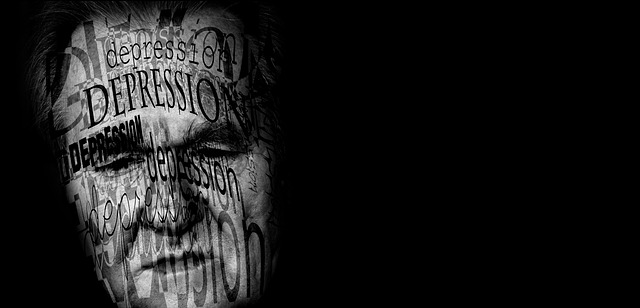
November 11, 2015, by Centre for Applied Social Research
Hey, don’t just shoot the messenger!
Author: Associate Professor Hugh Middleton
Hot topics of the time are the efficacy and safety of psychiatric medicines. These are some of the most widely prescribed drugs in the UK and globally. There is growing concern that their reputations for efficacy may have been inflated by biased trials reporting and their longer term safety underestimated. A prominent voice in this debate is the Council for Evidence-based Psychiatry, which held a one day conference at the University of Roehampton on September 18th. The event was recorded and can be viewed at https://www.youtube.com/channel/UC8eIK8kuf7tht1gV1HApH0g.
It was packed and energetic. Main speakers included Robet Whitaker, Peter Gøtszche, James Davies, Peter Breggin and John Abraham. We were treated to an expert review of the ways in which the widespread use of what might be considered harmful and barely helpful medicines has become the mainstay of psychiatry’s contribution to society. Speakers’ arguments were compelling and warmly received by an enthusiastic audience. Were medicines of such dubious value and so obvious a set of adverse effects being used in any other field, their use would be much more tightly regulated, but that is not how it is. Why is that?
When people discover I am a psychiatrist at gatherings such as this I often become a lightning rod for anger and frustration. It’s okay; it comes with the job, but a couple of things happened this time which highlighted why, and why this is so much more complicated than the simple black-and-white “Pharma and psychiatry bad, everyone else good”.
The first was when one of the audience interrupted a speaker. They clearly had more on their mind than the programme could accommodate. The interruption wasn’t welcomed and indeed forcible removal was threatened. That didn’t happen and the situation was calmed, but there were a few heated moments. The second was a comment from the floor about the adverse effects of psychiatric medicines from someone who had suffered them. When asked “How did you come to be taking them in the first place?” the answer was of course, “The doctor prescribed them”. When asked “Why did you go to the doctor?” the answer was “I was having difficulty sleeping in the course of difficult personal circumstances.”
Psychiatrists encounter people who want medication as often as they do those who don’t. We can question why and how people come to such different positions but if medicines are what they are seeking that position is commonly difficult to shift and the result is generally a prescription even if one is dubious about the supporting science or the weight of adverse effects. Refusal is likely to result in a request for another opinion.
Many of the distressing stories we heard at Roehampton were from people who had tried one antidepressant after another in the hope of relief … and eventually got nowhere. Where does the belief that somehow, somewhere there is a pill that can safely and reliably relieve human distress come from? What was the person who went to the doctor because they were suffering difficult personal circumstances actually looking for? Acknowledgment and comforting words should have been enough but they weren’t, which is why the doctor became involved. A prescription inevitably followed because that is all the doctor could do. A prescription is also a powerful symbol of concern and acknowledgment. As a result it brings relief, but then the cycle repeats and something different or stronger is sought. Practitioners reading this will be familiar with the cycle, but what starts it? Why did that person go to the doctor when they were distressed by difficult circumstances? What were they actually looking for? Could it have been found somewhere else, and if so where? How can our institutions mark and respond to the fact that someone might have become overwhelmed and incapacitated by life’s challenges, without having to identify them as “ill” and subject them to potentially toxic “treatment”?
Psychiatrists also have to respond to situations in which a very distressed, disturbed or confused person is a source of concern to others. Many will acknowledge authorising the detention of someone more because others were clamouring for it than because they were firmly convinced that would be the right thing to do, and detaining someone almost always also means medicating them. Put very bluntly, a lot of psychiatric prescriptions are issued (not only to detained patients) because a negotiation has been conducted between the prescriber, the patient and the patient’s associates resulting in “agreement” that the patient should take something to quieten them d own. The dynamics of such negotiations are fascinating and often very compelling expressions of social control.
The gathering at Roehampton on September 18th was nothing if it wasn’t one of people keen to see a different way of responding to personal distress and confusion than the widespread use of possibly harmful mind-numbing medicines. Thus it was fascinating to see how even a gathering such as that found it difficult to tolerate an episode of social disruption. All credit to the organisers and the frustrated person at the heart of it for settling things down, but those tense moments were a reminder of how powerful expectations of accepted social order can be. It isn’t nice, but very often psychiatrists find themselves powerless conduits of such forces, and understanding what they do and why has to include a recognition of this. We have been drugging and incarcerating inconvenient people for centuries and although this must change, wider expectations remain and they are deeply embedded in our understanding of how an ordered society should conduct itself.
The debate about psychiatric medicines is set to grow louder and psychiatry increasingly put under that uncomfortable spotlight. Already, many psychiatrists do what they do more often because they feel themselves to be powerless servants of wider social pressures than because this or that course of action is truly the best choice. Whether it is the individual seeking a “pill for their ill” or distressed others seeking a solution to a difficult situation, prescribing something which might do more harm than good in the long term, might still be the only option. Before shooting the messenger it is helpful to read the message and clarify where it has come from.
Hugh Middleton. November 2015.

Hugh Middleton is both an Associate Professor of the School of Sociology and Social Policy and an NHS Consultant Psychiatrist. Hugh’s latest book ‘Psychiatry Reconsidered: From Medical Treatment to Supportive Understanding’ was published in May, 2015.
Images courtesy of Pixabay and UoN.
No comments yet, fill out a comment to be the first

Leave a Reply